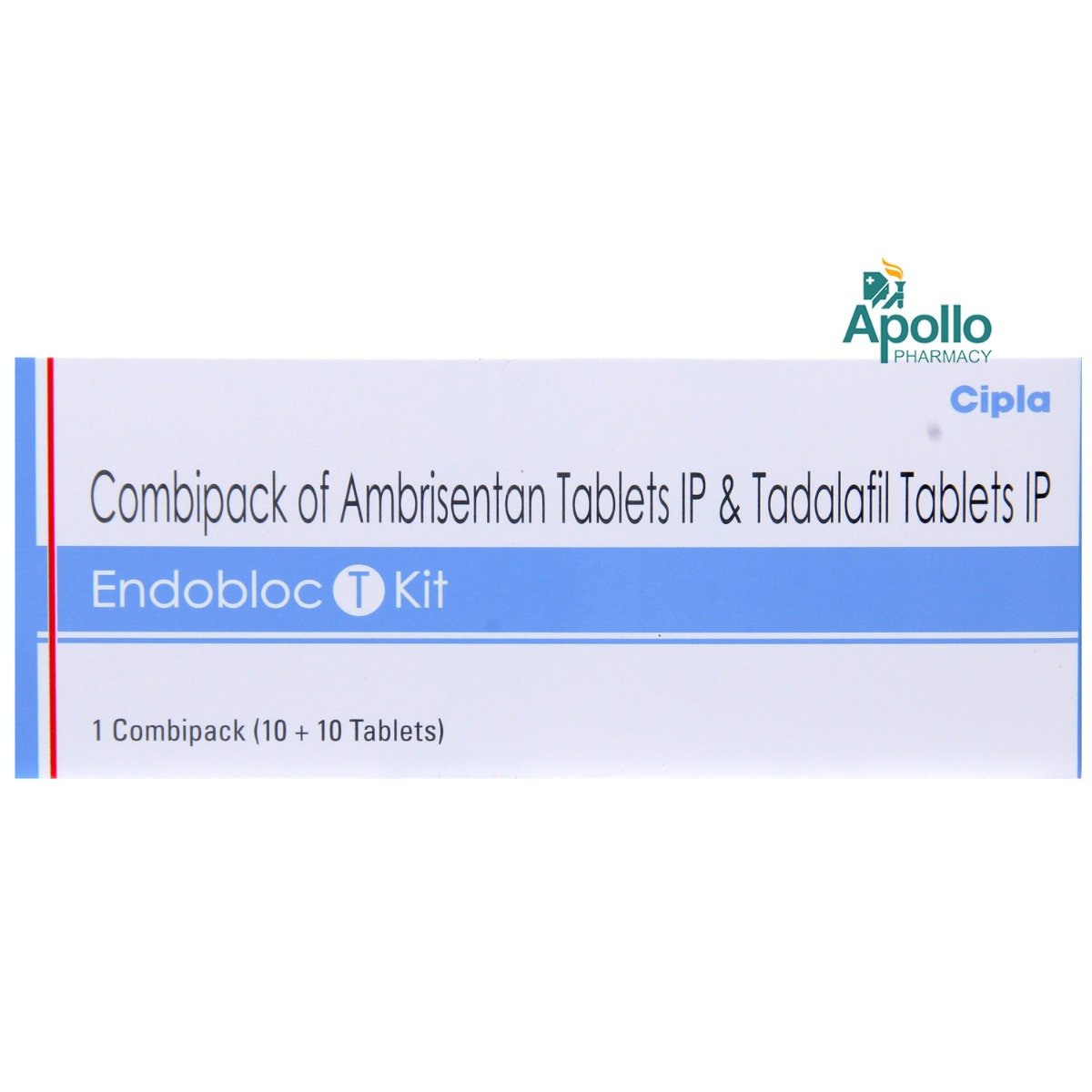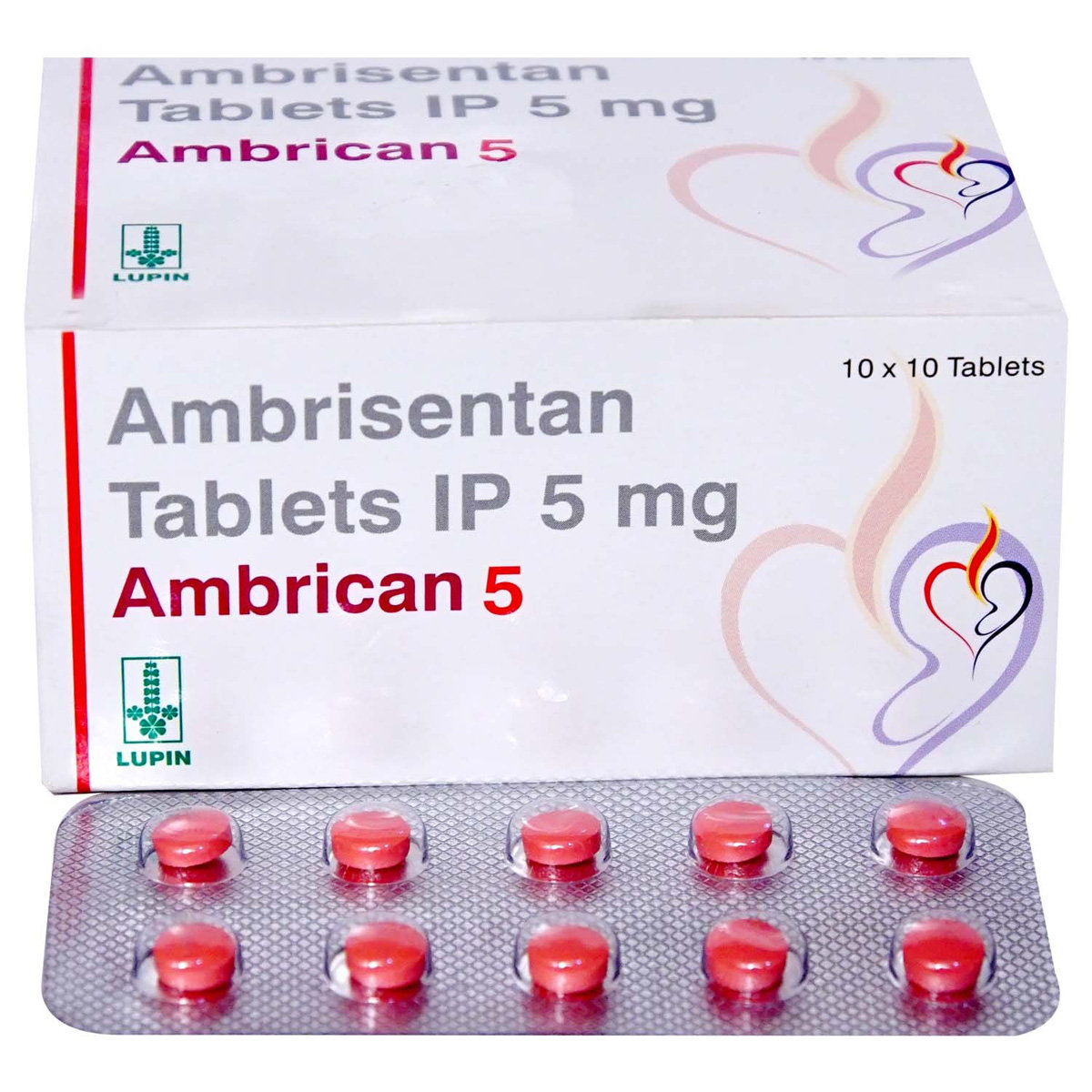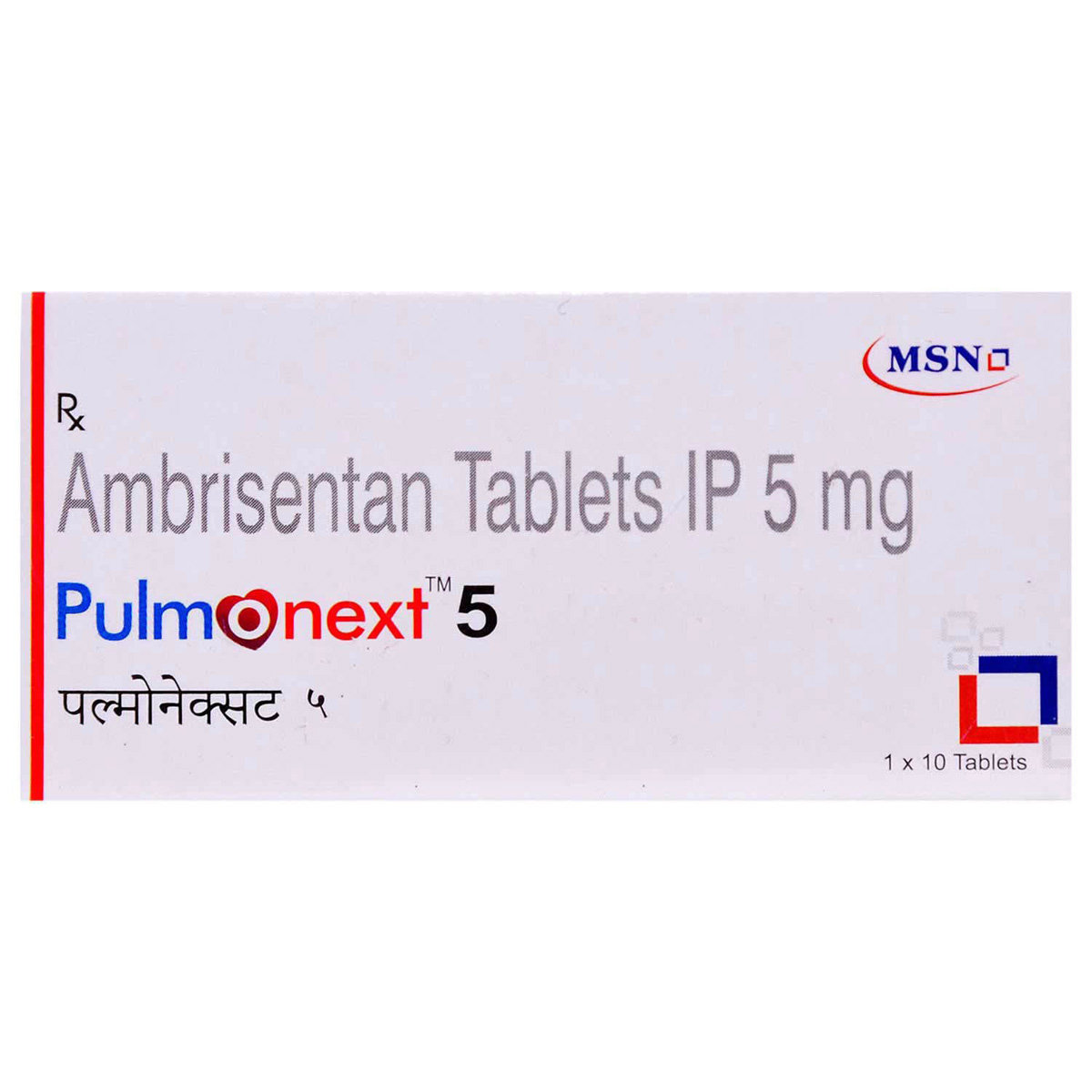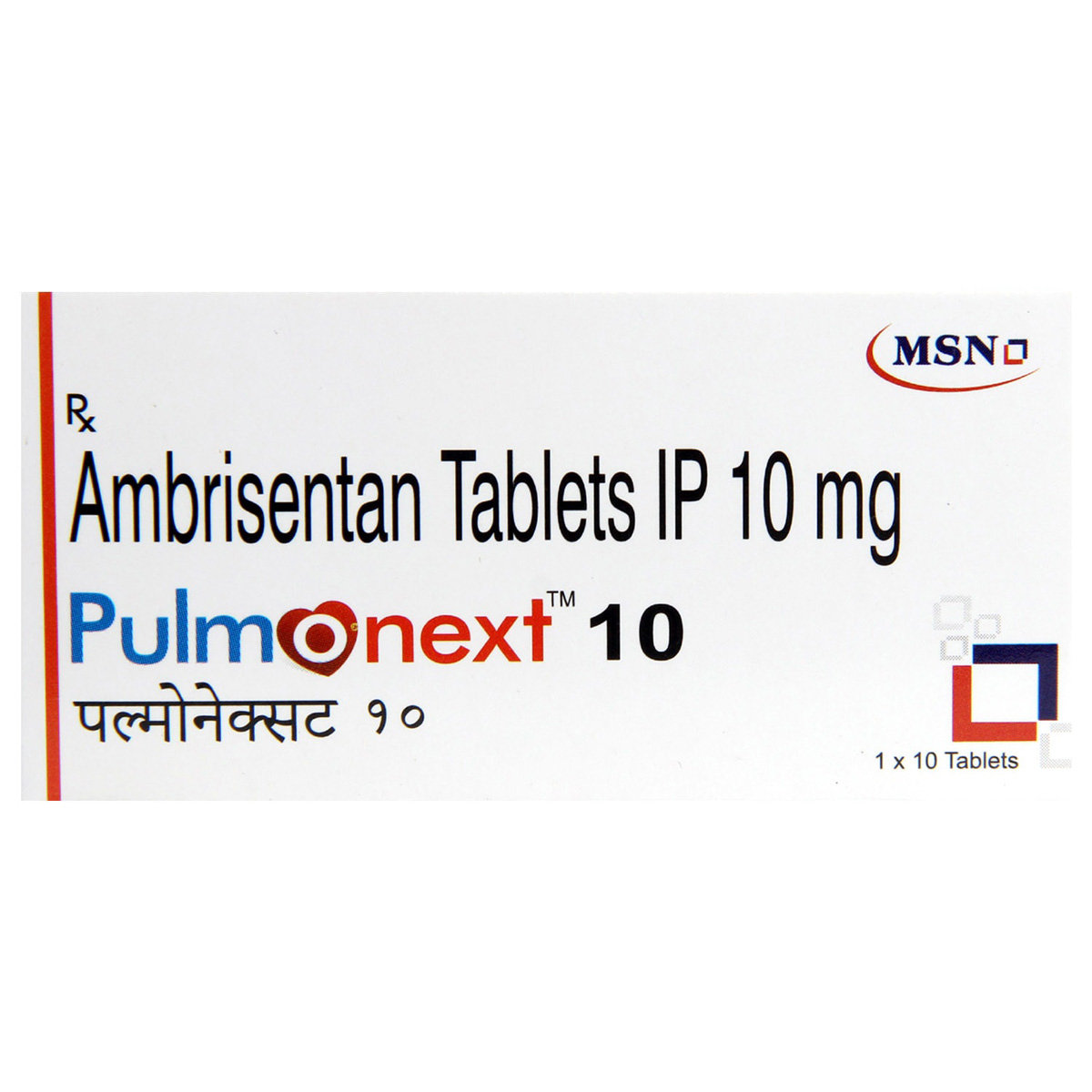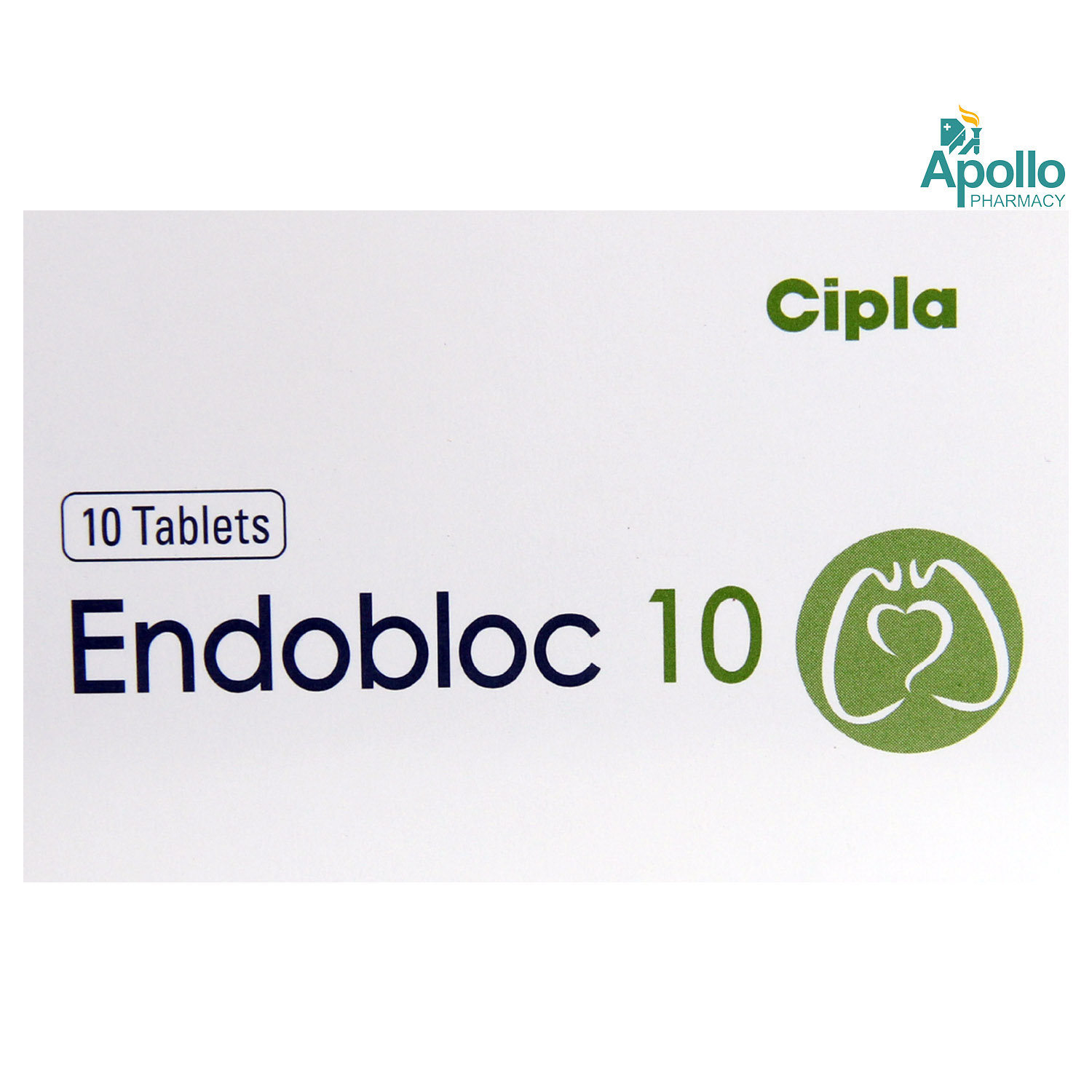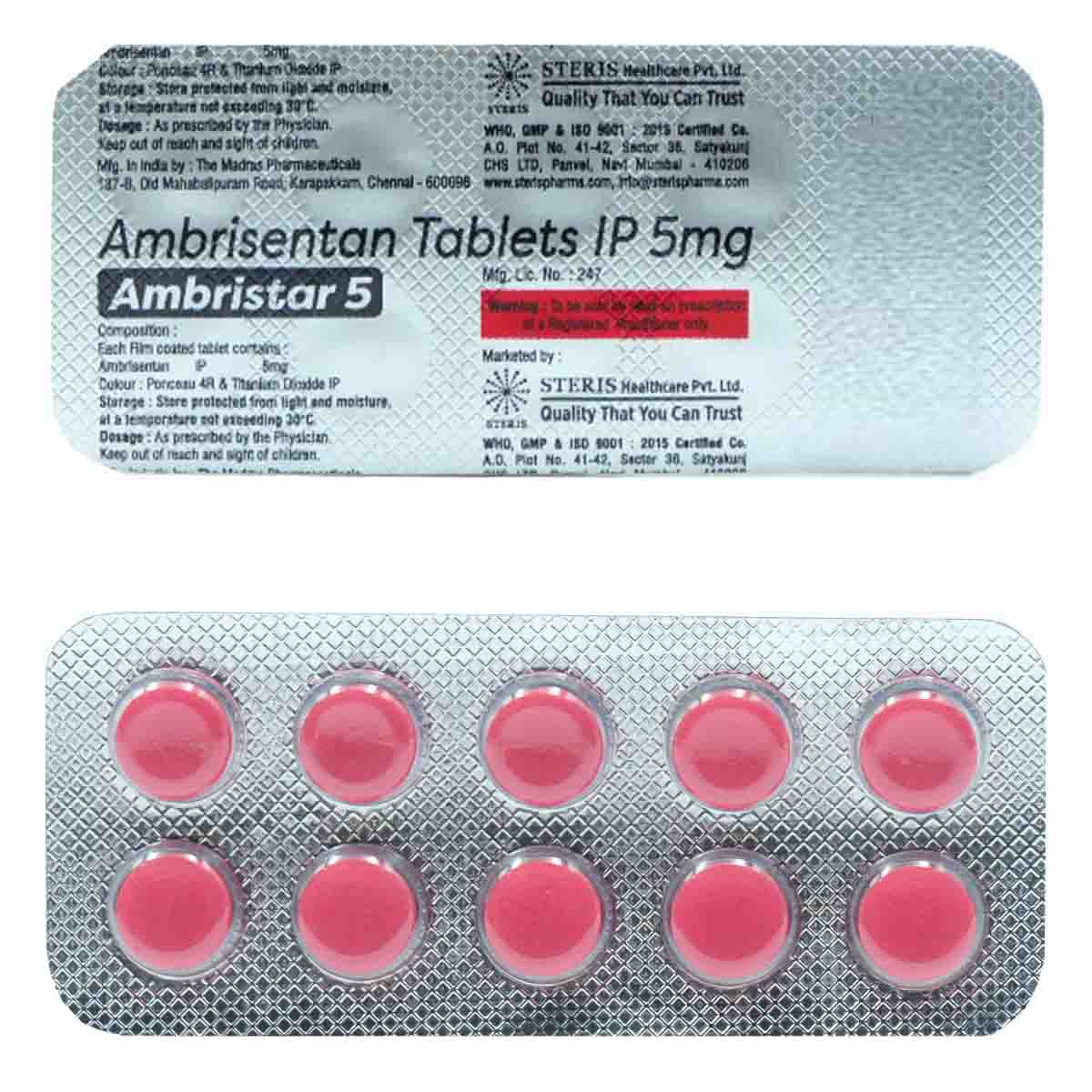Ambrisentan
About Ambrisentan
Ambrisentan is used to treat high blood pressure in the arteries of the lungs (pulmonary arterial hypertension). Pulmonary hypertension affects the arteries in the lungs and the right side of the heart.
Ambrisentan contains Ambrisentan, which works by inhibiting the action of Endothelin, a natural substance that constricts blood vessels and raises blood pressure.
In some cases, Ambrisentan can cause side effects like headache, dizziness, palpitations, breathlessness, runny nose, feeling sick, diarrhoea, and fatigue. Most of these side effects do not require medical attention. However, talk to your doctor if you experience these side effects persistently.
Please inform your doctor if you are using any prescription or non-prescription drugs, including vitamins and herbal products. It is advised to consult a doctor if you are a pregnant or breastfeeding mother. Do not stop taking Ambrisentan without consulting your doctor, since it may worsen your condition.
Uses of Ambrisentan
• Treatment of Pulmonary Arterial Hypertension: Ambrisentan is used to treat Pulmonary Arterial Hypertension (PAH) by increasing blood supply to the lungs, thus lowering the blood pressure.
• Decreases High Blood Pressure in Lung Arteries: Ambrisentan helps reduce high pressure in the arteries between the heart and lungs.
• Improves Exercise Tolerance: Ambrisentan improves stamina and physical activity capacity in PAH patients.
• Lowers Disease Progression: Ambrisentan slows the advancement of symptoms linked to PAH.
• Reduces Heart Strain: Ambrisentan reduces the workload on the heart by widening blood vessels in the lungs.
Medicinal Benefits
- Ambrisentan is an anti-hypertensive medicine that treats high blood pressure in the arteries of the lungs (pulmonary arterial hypertension (PAH)).
- Ambrisentan works by inhibiting the action of Endothelin, a natural substance that constricts blood vessels and raises blood pressure.
- Relaxes and widens blood vessels in the lungs.
- Improves blood flow from the heart to the lungs.
- Reduces strain on the heart caused by high lung pressure.
- Lowers pulmonary blood pressure.
Directions for Use
- Take Ambrisentan with or without food, or as advised by a doctor.
- Follow your doctor's instructions on the dosage and timing of this medication to improve effectiveness.
- Swallow Ambrisentan as a whole with a glass of water.
- Do not crush, chew, or break it.
Storage
Side Effects of Ambrisentan
- Headache
- Dizziness
- Swelling in your hands, legs, ankles, or feet
- Palpitations
- Breathlessness
- Chest pain or discomfort
- Stuffy nose, sinus pain
- Flushing (redness of the skin)
- Feeling sick
- Diarrhoea
- Feeling tired
- Rash
Medicines Containing this Salt
View AllDrug Warnings
- Inform your doctor if you have low blood pressure, lung, heart, kidney or liver problems, and anaemia (lack of blood cells).
- Ambrisentan is contraindicated during pregnancy since it has harmful effects on the foetus.
- Consult your doctor before using Ambrisentan if you are a breastfeeding mother.
- Do not stop taking Ambrisentan without consulting your doctor, since it may worsen your condition and increase the risk of future heart problems.
- Ambrisentan is not recommended in patients younger than 18 years of age.
- Do not drive or operate machinery since Ambrisentan may cause side effects like dizziness and weakness, affecting your ability to concentrate and drive.
- Avoid consumption of alcohol with Ambrisentan as it may increase the risk of low blood pressure.
Drug Interactions
Drug-Drug Interaction: Ambrisentan may interact with other PAH treating medicines (iloprost, epoprostenol), impotence-treating drugs (sildenafil), antibiotics (rifampicin) and immunosuppressants (cyclosporine).
Drug-Food Interaction: Alcohol may increase the side effects of Ambrisentan. Hence, it is advised to limit the intake of alcohol while using Ambrisentan.
Drug-Disease Interaction: People with heart failure, liver or kidney diseases, lung conditions (pulmonary fibrosis), anaemia, oedema (fluid retention), low blood pressure and severe dehydration should consult the doctor before taking Ambrisentan.
Drug-Drug Interactions Checker List:
Safety Advice

Alcohol
cautionIt is advised to limit alcohol intake, since alcohol consumption may increase the risk of low blood pressure and cause adverse effects, such as dizziness, fainting, light-headedness or headache.

Pregnancy
unsafeAmbrisentan is not recommended and unsafe in pregnancy. It can affect and harm the developing baby. You are advised to get a pregnancy test done before starting Ambrisentan. You should get a negative pregnancy test for sure before using Ambrisentan. Also, please use reliable forms of birth control if you are undergoing treatment with Ambrisentan to avoid pregnancy.

Breast Feeding
consult your doctorIt is not known if Ambrisentan is excreted into the breast milk. Please talk to your doctor for more information before taking Ambrisentan if you are a nursing mother.

Driving
cautionAmbrisentan may cause side effects like dizziness and weakness, affecting your ability to concentrate and drive. Hence, it is recommended not to drive or operate machinery until you are mentally alert.

Liver
cautionLet your doctor know if you have any history of liver disease before taking Ambrisentan. Ambrisentan may cause an increase in liver enzymes. If you are using Ambrisentan and experience any nausea, vomiting, loss of appetite, dark-coloured urine and yellowing of the skin, please see your doctor immediately.

Kidney
cautionAmbrisentan should be used with caution in cases of renal impairment. It is recommended to seek a doctor's advice before starting Ambrisentan if you have any kidney problems.

Children
unsafeSafety and effectiveness of Ambrisentan have not been established in patients below 18 years of age.
Habit Forming
Diet & Lifestyle Advise
- Reduce sodium intake in your diet to maintain your blood pressure.
- Eat natural and healthy foods by cutting down on high-sodium processed foods.
- Lose those extra pounds, since being obese can be a risk factor for hypertension.
- Exercise regularly to maintain good heart health.
- Avoid smoking and alcohol intake.
- Chronic stress may also cause high blood pressure. Therefore, avoid stress triggers and make time for yourself to relax and do activities that you enjoy.
- Try to include heart-healthy omega-3 fatty acids in your daily diet. You can also use low-fat cooking oil like olive oil, soybean oil, canola oil and coconut oil to lower your elevated blood pressure.
- Limit sodium chloride intake (table salt) in your daily diet to 2300 mg per day or less than 1500 mg is ideal for most adults.
Special Advise
- Keep a check on your daily blood pressure, and if you notice any fluctuations, please consult a doctor.
- You may be asked by your doctor to undergo blood and urine tests if you have been suffering from vomiting or dehydration.
- If you have diabetes, using Ambrisentan may affect your blood sugar levels. Inform your doctor so that your diabetes medication may be adjusted accordingly.
- Your dietitian may prescribe a suitable exercise program and diet to manage your blood pressure.
- Your doctor may also suggest liver function tests since Ambrisentan may cause a change in liver enzymes.
Patients Concern
Disease/Condition Glossary
Hypertension: It is a medical condition in which blood pressure is elevated persistently in the arteries. It is considered an essential risk factor for cardiovascular diseases and can be caused by obesity, diabetes, smoking, high salt intake, stress, lack of physical activity or ageing. Blood pressure is measured in the ratio of systolic pressure to diastolic pressure. Systolic pressure is the pressure when the heart pumps blood out. On the other hand, diastolic pressure is the pressure when your heart is at the resting stage between heartbeats. If your blood pressure is 140/90 mm of Hg, it means the systolic pressure is 140 mm of Hg and the diastolic pressure is 90 mm of Hg. The ideal blood pressure range lies between 90/60 mmHg and 120/80 mmHg. If the blood pressure is 140/90 mmHg or greater, it is considered high blood pressure.
Pulmonary Arterial Hypertension: It is referred to as high blood pressure in the blood vessels (the pulmonary arteries) that carry blood from the heart to the lungs. Symptoms include shortness of breath, dizziness, and chest pressure.
FAQs
Ambrisentan is used to treat Pulmonary arterial hypertension.
Ambrisentan consists of Ambrisentan. It is an anti-hypertensive medicine that lowers blood pressure by widening the pulmonary arteries and making the heart pump blood efficiently.
Yes, Ambrisentan can make you feel dizzy. Dizziness usually occurs when you suddenly stand up from a lying or sitting position. Try rising slowly when you change your posture to relieve dizziness. If the side effect persists longer, please seek medical help.
Do not stop using Ambrisentan even if you feel better. It should be strictly used as advised by your doctor to avoid the recurrence of symptoms and worsening of the disease.
Ambrisentan should be used with caution in cases of any allergic reactions, heart failure, liver, kidney diseases, lung conditions (pulmonary fibrosis), anaemia, oedema (fluid retention) and hypotension (low blood pressure).
Store Ambrisentan away from direct sunlight and at a temperature not exceeding 30°C. Keep this medicine out of the sight and reach of children.
Ambrisentan may rarely cause liver problems. Your doctor will monitor your liver function while you're taking Ambrisentan. If you experience symptoms like yellowing skin, dark urine, or abdominal pain, seek medical attention. Discuss any concerns with your doctor.
Take Ambrisentan exactly as your doctor tells you to. Typically, it's one tablet once a day. Swallow the tablet whole with water, and take it at the same time each day. Don't crush, chew, or break it.
Don't stop taking Ambrisentan without talking to your doctor first. Stopping suddenly can worsen your condition and increase the risk of heart problems. Your doctor will advise you on how to safely stop taking Ambrisentan if needed. Follow their instructions carefully.
Ambrisentan is used to treat high blood pressure in the lungs, but have risks and limitations. They can cause serious side effects and may not be suitable for everyone, including pregnant women and those with certain medical conditions. Always follow your doctor's instructions and ask questions if needed.
Ambrisentan can be effective in treating certain conditions, but in some cases, it can cause serious side effects. Watch out for severe swelling, difficulty breathing or swallowing, and sudden weight gain. Additionally, be aware of extreme tiredness, yellowing of the skin or eyes, dark urine, and severe itching. If you experience any of these symptoms, call your doctor right away or seek emergency medical help. Don't delay; these side effects can be serious and require prompt attention. Discussing the potential risks and benefits with your doctor before starting treatment is essential.
You have been prescribed Ambrisentan to treat pulmonary arterial hypertension (PAH), which is high blood pressure in the lungs.
Avoid exceeding the recommended dose, as it could lead to an overdose. Symptoms of overdose may include sweating, confusion, blurred vision, dizziness, light-headedness when getting up suddenly from a sitting/lying position, or faintness. If you experience these symptoms or suspect you have taken an overdose, seek immediate medical attention.
Common side effects of Ambrisentan may include headache, dizziness, palpitations, breathlessness, runny nose, feeling sick, diarrhoea, and fatigue. These side effects are not familiar to everyone and vary individually. If you notice any side effects that are not manageable, please consult your doctor.
No, you should not take Ambrisentan on your own without consulting a doctor. This medication is prescribed for specific medical conditions and requires a doctor's supervision to ensure safe and effective use.
Safety and effectiveness of Ambrisentan have not been established in patients below 18 years of age.

